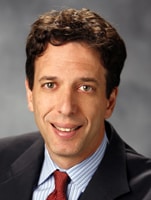Duke Professor Improving Discourse on Counter-terrorism via Online Class
Duke’s professor David Schanzer talks about the crisis in Syria and his MOOCs on 9/11 and counter-terrorism.
Prof. David Schanzer has a background in law and worked on Capitol Hill during the time of 9/11, for three senators, the Department of Justice, and the Defense Department. He then joined Duke University in 2004 to study policy and legislation related to 9/11 from an academic perspective. He is teaching a MOOC offered via Coursera titled Responding to 9/11: Counterterrorism Policy in the 21st Century, starting October 20.
There is currently a lot of attention in the news around Syria, and the coalition being gathered by the United States to suppress ISIL. Prof. Schanzer notes that the public discourse has been fairly thin:
Most media and people were not paying attention to the Syrian civil war until the beheading videos. Clearly the videos triggered responses in people and has affected policies, and now there is an active coalition forming around this, but the issues are complex
However, Prof. Schanzer is cautiously optimistic about the prospects for the alliance. But as with most issues in the Middle East, things are multi-layered and complex, and discussing these issues is the reason he is hosting the MOOC.
The 9/11 MOOC
Prof. Schanzer wants to cover a good deal of background context in his MOOC, and then encourage students to discuss things via discussion boards. Prof. Schanzer’s first MOOC, held last year, 9/11 and Its Aftermath, had 18,000 participants sign-up, and more than 750 participants who completed requirements for a certificate. But completing the MOOC is not necessarily the important thing: hundreds of thousands of hours of video were watched or downloaded, and there were vigorous discussions in the discussion boards. Most important of all, the MOOC attracted participants from different backgrounds and different parts of the world who shared their perspectives and views.
More of us should write policy memos
One of the most popular elements of Prof. Schanzer’s course (both on campus and in the MOOC) is the assignment to write a policy memo. The context is to brief a hypothetical decision-maker with background and an opinion on a controversial issue. The policy memo has to follow a specific format and must also be brief. Prof. Schanzer even has a YouTube video that covers the basics of writing a policy memo. This has been found to be a great exercise to help students understand perspectives on an issue fully and without excess emotion. In the MOOC, you will get feedback on your memo by several of your peers. Prof. Schanzer describes how students benefit from this:
When you put students in a different scenario, they gain a deeper understanding. People really appreciate the tips that they were getting on both their substance and their writing style: how to frame an argument, how to write concisely
On being better informed
“Diversify the sources from which you get information.”
What does Prof. Schanzer consider to be the keys to improving the dialog that we are having about some of the seemingly intractable issues related to terrorism? He suggests that we should try to keep an open mind and to acknowledge the good faith of others. But to engage in dialog in the first place, we need to be well informed. I asked Prof. Schanzer to recommend specific media sources. He was not tied to any particular sources and named many of the top papers (New York Times, Wall Street Journal, International Herald Tribune, etc.), and suggested that people “diversify the sources from which you get information.” The only caveat was relying too much on blogs, which may be of uneven quality (one national security blog he did recommend was the Lawfare blog. Prof. Schanzer was enthusiastic about several books that he thought were valuable for people to read:
- The Longest War: The Enduring Conflict between America and Al-Qaeda by Peter Bergen (and any of his other books)
- The Looming Tower: Al-Qaeda and the Road to 9/11 by Lawrence Wright
- Understanding Terror Networks by Mark Sageman
- Terror in the Name of God: Why Religious Militants Kill by Jessica Stern
- Inside Terrorism by Bruce Hoffman
- The Way of the Knife: The CIA, a Secret Army, and a War at the Ends of the Earth by Mark Mazzetti
- The 9/1 Commission Report (free PDF)
It is nice to know there are many good books available. But nothing beats listening to experts like Prof. Schanzer, who has been studying these issues, and in actually communicating with others about their viewpoints. If you are interested in participating in Prof. Schanzers free MOOC, sign up for Responding to 9/11: Counterterrorism Policy in the 21st Century, which starts Oct. 20.






